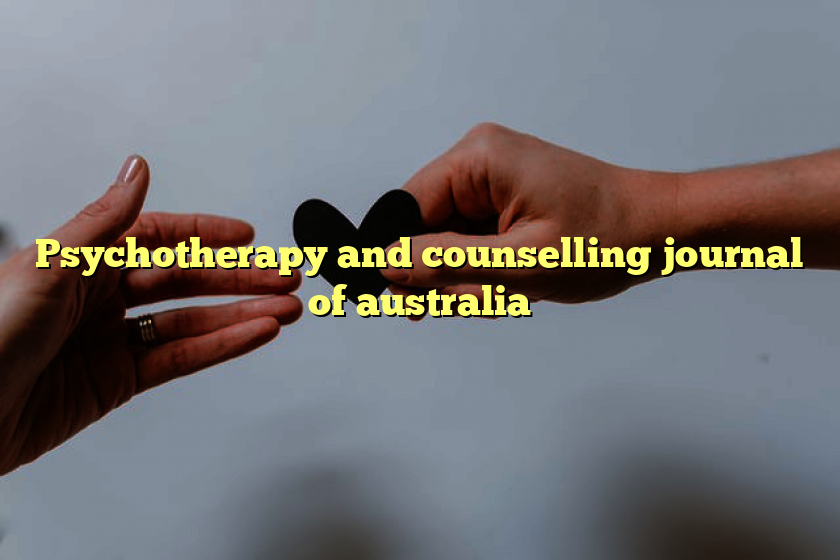The Psychotherapy and Counselling Journal of Australia (PACJA) is an international, peer-reviewed journal which aims to contribute to the evidence-base for counselling and psychotherapy.
PACJA publishes theoretical essays, experiential reports, and empirical studies featuring quantitative, qualitative, or mixed-method approaches.
PACJA encourages practitioners, researchers, students and educators (even if you have never published before) to submit articles for publication. The process is intended to be supportive in order to mentor aspiring authors to contribute to the dissemination of research in the counselling and psychotherapy field.
For more information and to view the PACJA Editorial Policy, go to the PACJA website.
Call for articles
PACFA is calling for articles for the next edition of The Psychotherapy and Counselling Journal of Australia (PACJA), PACFA’s official e-Journal. PACJA’s aim is to publish articles that contribute to the disciplines, development and evidence base of psychotherapy and counselling.
For information on how to submit an article to PACJA, please see the PACJA website.
Jane Marsden
PACJA Editor
A PACFA-registered clinical counsellor with three decades of multicultural media experience, Jane (she/her) attained a PACFA award for outstanding graduate for her Master of Counselling. As a family counsellor and educator with Relationships Australia, she works with individuals, couples and families experiencing marginalisation in regional Queensland. She also has an inner-city private practice specialising in couples counselling. Jane has edited and written for a broad variety of publications including newspapers, magazines and books in Australia and Asia.
The Psychotherapy and Counselling Federation of Australia (PACFA) is the leading peak body for the counselling and psychotherapy profession in Australia. PACFA’s members are counsellors, psychotherapists, Indigenous Healing Practitioners, academics in the field of counselling and psychotherapy, counselling and psychotherapy students and members of Member Associations.
PACFA’s mission is to represent the counselling and psychotherapy profession to communities and government, and to develop the evidence-base for counselling and psychotherapy.
PACFA promotes the development and practice of counselling and psychotherapy and respects and supports the diversity of approaches within the field. The organisation provides a united forum for practitioners and for counselling and psychotherapy associations, to foster professional identity, support training and research, and ensure public accountability. PACFA provides support to members through their branches, colleges and interest groups.
PACFA provides self-regulation functions for the counselling and psychotherapy profession. Practising members of PACFA and PACFA Member Associations are listed on PACFA’s National Register. PACFA Registrants have met the highest training standards for the counselling and psychotherapy profession in Australia and comply with PACFA’s ethical standards. The Register is accessible via the ‘Find a Therapist’ directory on the PACFA website to members of the public looking for a counsellor or psychotherapist and to other professionals wishing to make referrals.
Within PACFA there are five organisations or Colleges, which provide a focus for PACFA member counsellors, psychotherapists or Indigenous Healing Practitioners to collaborate and advance the College members’ interests. The five Colleges are: the College of Aboriginal and Torres Strait Islander Healing Practices (CATSIHP), the College of Counselling, the College of Psychotherapy, the College of Relationship Counsellors and the College of Counselling and Psychotherapy Educators.
As part of its research dissemination role, PACFA produces an international, peer-reviewed journal, the Psychotherapy and Counselling Journal of Australia.
See also
[
edit
]
References
[
edit
]
TY – JOUR
T1 – The effectiveness of supportive counselling, based on Rogerian principles: a systematic review of recent international and Australian research
AU – Jacobs, Nicky
AU – Reupert, Andrea Erika
PY – 2015
Y1 – 2015
N2 – The purpose of this paper is to present a systematic literature review of the effectiveness of Supportive Counselling (SC) based on Rogerian principles. This review of recent international (last five years) and Australian (last ten years) papers was employed using the PsycINFO, Ovid Medline, APAIS (Informit), Web of Science and Social Services Abstracts data bases. Various terms were employed encompassing Supportive Counselling (SC) including; Person Centred Therapy (PCT), Non-Directive Supportive Therapy (NDST) and Supportive Therapy (ST). A total of 26 international papers and two Australian papers met the inclusion criteria. Papers were grouped into (i) meta-analyses and systematic reviews (n=4) as well as papers (ii) where SC was the primary therapeutic candidate (n=10), (iii) where SC was equally compared to other therapies (n=3) and (iv) where SC was the alternative, control therapy (n= 11). Various methodological issues were identified, primarily in the way SC was defined, implemented and compared to other therapies. Overall, while a number of methodological issues preclude definitive claims, there is evidence to suggest that the group of therapies often referred to as supportive are effective, and equally as effective as selected other therapies, in the treatment of adult depression.
AB – The purpose of this paper is to present a systematic literature review of the effectiveness of Supportive Counselling (SC) based on Rogerian principles. This review of recent international (last five years) and Australian (last ten years) papers was employed using the PsycINFO, Ovid Medline, APAIS (Informit), Web of Science and Social Services Abstracts data bases. Various terms were employed encompassing Supportive Counselling (SC) including; Person Centred Therapy (PCT), Non-Directive Supportive Therapy (NDST) and Supportive Therapy (ST). A total of 26 international papers and two Australian papers met the inclusion criteria. Papers were grouped into (i) meta-analyses and systematic reviews (n=4) as well as papers (ii) where SC was the primary therapeutic candidate (n=10), (iii) where SC was equally compared to other therapies (n=3) and (iv) where SC was the alternative, control therapy (n= 11). Various methodological issues were identified, primarily in the way SC was defined, implemented and compared to other therapies. Overall, while a number of methodological issues preclude definitive claims, there is evidence to suggest that the group of therapies often referred to as supportive are effective, and equally as effective as selected other therapies, in the treatment of adult depression.
UR – http://pacja.org.au/?p=2254
M3 – Article
VL – 3
SP – 1
EP – 12
JO – The Psychotherapy and Counselling Journal of Australia
JF – The Psychotherapy and Counselling Journal of Australia
SN – 2201-7089
IS – 1
ER –




